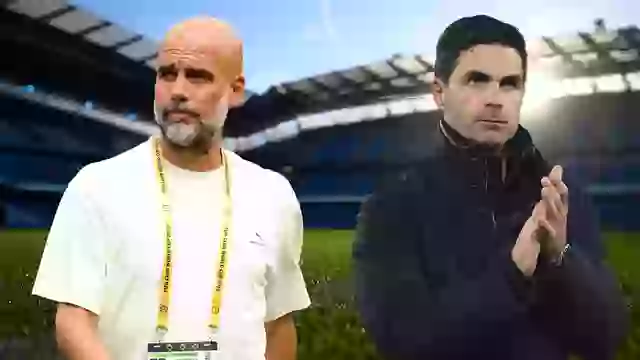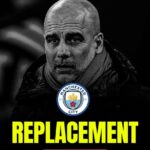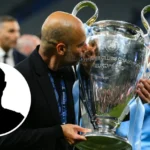Man City ‘target shock name to replace Pep Guardiola’ and Mikel Arteta could play key role in it happening

Manchester City’s dominance under Pep Guardiola has been nothing short of revolutionary. Since his arrival in 2016, the Catalan mastermind has transformed the club into a footballing juggernaut, securing multiple Premier League titles, domestic cups, and the coveted Champions League trophy. However, even the most successful reigns must eventually come to an end, and City’s hierarchy has begun the delicate process of succession planning.
The Citizens find themselves in unfamiliar territory this season, entering the new Premier League campaign without the tag of reigning champions for the first time in four years. Liverpool’s resurgence under Arne Slot has ended City’s domestic stranglehold, marking a significant shift in English football’s power dynamics. This changing landscape has only intensified discussions about the club’s future direction and leadership.
A Turbulent Season Exposes Vulnerabilities
The 2024-25 season proved to be a wake-up call for Manchester City, highlighting their vulnerability without key personnel. The injury to Rodri, arguably their most important player, exposed the depth issues within Guardiola’s squad. The Spanish midfielder’s absence was keenly felt as City struggled to maintain their usual control and rhythm in the middle of the park.
The consequences were immediate and severe. City slipped to third place in the Premier League standings, finishing behind both Liverpool and Arsenal in what many considered an unexpected outcome. The psychological impact of losing their domestic dominance cannot be understated, particularly for a club that had grown accustomed to setting the standard in English football.
Their European campaign also ended in disappointment, with Real Madrid eliminating them from the Champions League in a tie that showcased both the brilliance and limitations of Guardiola’s tactical approach. The FA Cup final defeat to Crystal Palace added insult to injury, representing a season where City failed to secure any major silverware for the first time in years.
Guardiola’s Commitment and Future Uncertainty
Despite the challenging season, Pep Guardiola demonstrated his loyalty to the Manchester City project by signing a two-year contract extension in November 2024. The deal, which runs until June 2027, initially appeared to settle questions about his future. However, the Catalan admitted he had seriously considered walking away from the club at the end of the troubled season.
Guardiola’s honesty about his thought process revealed the mental toll of sustained success and the pressure that comes with maintaining the highest standards. His decision to stay was influenced by his belief that departing during a difficult period would not be appropriate, showing the character and commitment that has made him one of football’s most respected figures.
The contract extension provides stability and continuity, but it also establishes a clear timeline for succession planning. City’s executives understand that Guardiola’s tenure, while potentially lasting until 2027, represents the final chapter of an extraordinary era. This reality has prompted them to begin identifying and evaluating potential successors well in advance.
The Succession Challenge
Replacing Pep Guardiola presents unique challenges that extend far beyond typical managerial appointments. His influence at Manchester City goes beyond tactics and team selection; he has fundamentally altered the club’s DNA, establishing a philosophy that permeates every level of the organization. The next manager will inherit not just a squad of players, but an entire footballing culture built around Guardiola’s principles.
The ideal successor must possess several key attributes: tactical sophistication, man-management skills, experience with high-profile players, and most importantly, an understanding of the footballing philosophy that has made City so successful. They must be capable of evolution while maintaining the core principles that have served the club so well.
City’s hierarchy recognizes that the wrong appointment could undo years of progress and potentially trigger a period of decline similar to what Manchester United experienced after Sir Alex Ferguson’s departure. This awareness has led to a methodical approach to succession planning, with multiple candidates being evaluated across different criteria.
The Fabregas Factor: A Shock Contender Emerges
Among the names being considered for the eventual succession, Cesc Fabregas has emerged as a surprising but compelling candidate. The former Arsenal, Barcelona, and Chelsea midfielder’s inclusion on City’s shortlist reflects the club’s willingness to think outside conventional boundaries when identifying potential successors.
Fabregas’s credentials extend beyond his playing career, though his on-field achievements certainly provide credibility. His time at Barcelona’s La Masia academy, where he was schooled in the same footballing principles that shaped Guardiola’s approach, creates a natural philosophical alignment. This shared foundation in Barcelona’s football culture could prove crucial in maintaining continuity at City.
The Spaniard’s playing career also provides valuable context for his potential appointment. His time in the Premier League with Arsenal and Chelsea means he understands the unique demands and challenges of English football. He has experienced the pressure of playing for clubs with title ambitions and knows what it takes to perform at the highest level consistently.
Como: The Perfect Proving Ground
Fabregas’s managerial journey began at Como, the Serie A club where he has been building his reputation as a tactically astute coach. His work in Italy has not gone unnoticed, with his team’s performances earning praise from football observers across Europe. Como’s 10th-place finish last season was considered a significant achievement given the club’s resources and expectations.
The former midfielder’s approach at Como demonstrates several qualities that would appeal to Manchester City’s decision-makers. His tactical flexibility, ability to develop young players, and commitment to attractive football all align with City’s values. More importantly, his willingness to take on a challenging project and see it through to completion suggests the kind of long-term thinking that City would value in their next manager.
Inter Milan’s interest in Fabregas following their Champions League final appearance speaks to his growing reputation in the coaching world. That he chose to remain at Como, citing his belief in the club’s long-term project, demonstrates loyalty and patience – qualities that would be essential in any future role at Manchester City.
The Arsenal Connection: Arteta’s Influence
The potential appointment of Fabregas would create fascinating dynamics within the Premier League, particularly regarding his relationship with current Arsenal manager Mikel Arteta. Both managers share similar backgrounds, having learned their craft at Barcelona’s La Masia academy before playing in the Premier League and working under Guardiola’s influence.
Arteta’s successful transition from player to Guardiola’s assistant to Premier League manager provides a blueprint that Fabregas could potentially follow. Their shared experiences and mutual respect could add an intriguing subplot to future Arsenal-City encounters, should Fabregas eventually take charge at the Etihad.
The Arsenal connection runs deeper than just personal relationships. Both clubs have been building their identities around possession-based football and tactical sophistication. The prospect of former teammates managing rival clubs would add another layer of complexity to what is already one of the Premier League’s most tactically intriguing fixtures.
Philosophical Alignment and Tactical Evolution
One of the strongest arguments for Fabregas’s eventual appointment lies in his philosophical alignment with Manchester City’s established approach. His Barcelona background ensures he understands the principles of possession-based football, patient build-up play, and tactical fluidity that have become synonymous with City’s style.
However, Fabregas would also bring his own innovations and adaptations to the role. His playing experience across different leagues and tactical systems provides him with a broader perspective than managers who have only worked within one particular framework. This diversity of experience could prove valuable in evolving City’s approach while maintaining its core identity.
The challenge for any Guardiola successor will be balancing continuity with necessary evolution. Football tactics continue to develop, and what works today may not be as effective in three years’ time. Fabregas’s demonstrated ability to adapt and learn suggests he could manage this transition effectively.
The Broader Context of Modern Football Management
The consideration of Fabregas reflects broader trends in modern football management. Clubs are increasingly looking for coaches who combine tactical intelligence with strong communication skills and cultural understanding. The days of appointing managers solely based on their trophy cabinet or playing reputation are largely over.
Manchester City’s approach to succession planning also reflects the increased importance of long-term thinking in football. The club’s investment in infrastructure, youth development, and tactical coherence throughout the organization requires a manager who can maintain these standards while adding their own innovations.
The success of former players transitioning to management roles has encouraged more clubs to consider candidates from non-traditional backgrounds. Fabregas’s potential appointment would represent another example of this trend, following successful transitions by managers like Arteta, Xavi, and others.
Challenges and Considerations
Despite the compelling case for Fabregas’s eventual appointment, several challenges and considerations remain. His relative inexperience as a manager compared to other potential candidates could be seen as a significant risk. Managing a club with Manchester City’s expectations and resources requires skills that cannot be learned overnight.
The pressure of following Guardiola would be immense. The Spanish coach has set standards that may be impossible to match, and any successor will face inevitable comparisons. Fabregas would need to demonstrate not just tactical acumen but also the mental strength to handle this unique pressure.
There are also questions about timing and readiness. While Fabregas has impressed at Como, managing a club fighting for survival in Serie A is vastly different from handling the expectations and egos associated with Manchester City. The transition would represent a significant step up in complexity and responsibility.
The Arteta Example: Lessons and Warnings
Mikel Arteta’s journey from Guardiola’s assistant to Arsenal manager provides both inspiration and cautionary tales for any potential successor. Arteta’s initial struggles at Arsenal demonstrated how difficult it can be to implement new ideas and establish authority, even with a strong tactical background.
However, Arteta’s eventual success also shows what is possible when a manager is given time and support to develop their ideas. His ability to modernize Arsenal’s approach while respecting the club’s traditions offers a template that could be relevant for City’s succession planning.
The key difference is that Arteta took over a club in decline, while Fabregas would potentially inherit a team at the peak of its powers. This distinction presents both opportunities and challenges, as maintaining success can be more difficult than building it from scratch.
Future Implications and Conclusions
The eventual appointment of Guardiola’s successor will have profound implications for Manchester City and the broader Premier League landscape. The choice will signal the club’s ambitions and philosophy for the next decade, potentially influencing transfer policy, youth development, and tactical approach.
Fabregas’s emergence as a candidate reflects City’s commitment to finding a manager who can maintain their core identity while bringing fresh perspectives and innovations. His Barcelona background, Premier League experience, and demonstrated tactical intelligence make him an intriguing option for the future.
The connection to Arsenal through Arteta and the shared La Masia heritage adds another dimension to this potential appointment. It would create fascinating tactical and personal dynamics within the Premier League, particularly in matches between City and Arsenal.
As Manchester City continue their succession planning, the Fabregas option represents both risk and opportunity. His relative inexperience is balanced by his tactical intelligence and philosophical alignment with the club’s values. Whether he ultimately gets the opportunity to lead City into their post-Guardiola era remains to be seen, but his inclusion in the conversation demonstrates the club’s thoughtful approach to one of football’s most important upcoming decisions.
The next few years will be crucial in determining both Fabregas’s readiness for such a significant role and Manchester City’s ultimate direction. What remains certain is that the club’s succession planning will be watched closely by football observers worldwide, as the decision will likely influence the Premier League’s competitive landscape for years to come.















